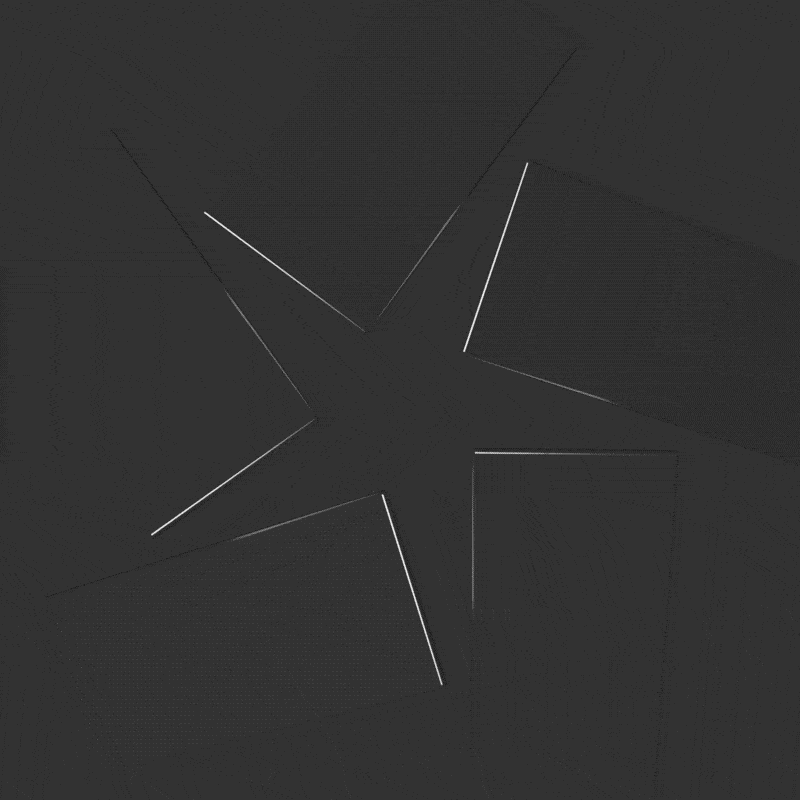1,576 days, 2,409 entries ...
Newsticker, link list, time machine: HOLO.mg/stream logs emerging trajectories in art, science, technology, and culture––every day
“I can’t help you with your film because people just want a gay film or lesbian film, and this mixture of sexuality in your film is just not going anywhere.”
Foregrounding food production and consumption, Deirdre O’Mahony’s “The Quickening” opens at Trinity College Dublin’s Douglas Hyde Gallery. In its eponymous film (2024, image), the Irish artist documents years of consultation with farmers and policymakers, conveying the “reality of farming and the centrality of soil to human, animal, and insect life.” Kicking off a tour, O’Mahony will subsequently screen the film in Carlow, Waterford, Kilkenny and other towns across Southern Ireland.

“Many technologies are modelled on our anatomy—they are extensions of us. I wanted to get closer to the sirens, to see them as a ‘circuit of an ear and a mouth, listening out for threat and broadcasting it to the population,’ to quote the film.”
Gala Hernández López’s sci-fi documentary for here am i sitting in a tin can far above the world (2024) premieres at Berlinale. In the double-screen collage of YouTube videos, archival images, and 3D animations, the French artist-researcher and filmmaker explores the links between crypto culture and cryogenics as two speculative technologies that exploit the future. A key narrative figure: American extropian and cypherpunk Hal Finney, who, in a fictional future, implements societal biostasis for economic gain.
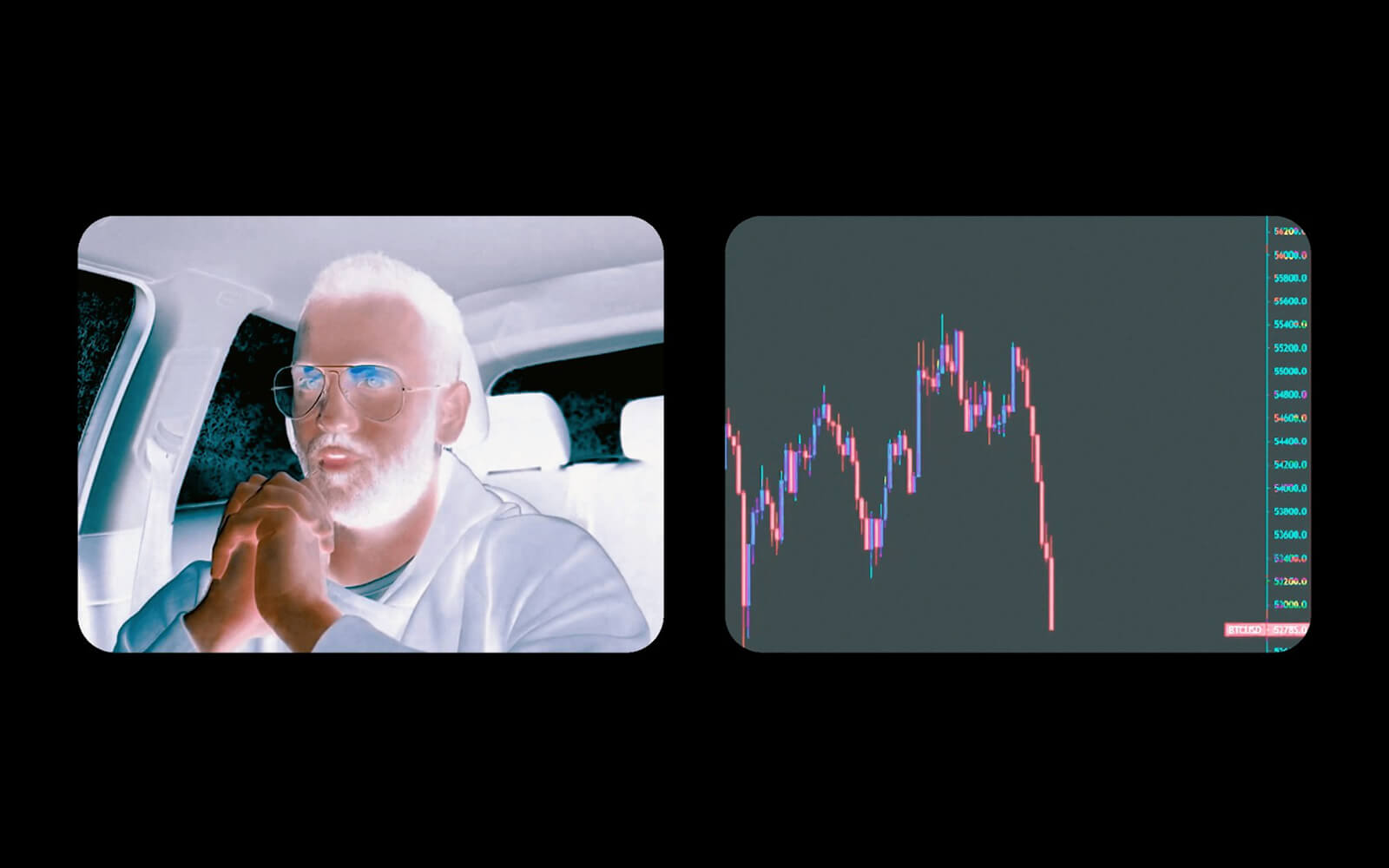
“We want to hijack mass media in order to radicalize people politically. Videogames have an enormous potential to question ideology and they don’t fulfil this potential at all.”
“Copyright only works above a certain threshold of importance. That’s something you learn as an artist. Your voice doesn’t matter.”
Total Refusal’s newest videogame exploit Kinderfilm (2023) premieres at Locarno Film Festival (CH) in the prestigious international competition. Set and shot entirely in Rockstar’s action adventure Grand Theft Auto V (2013), the Austrian machinima collective tells the story of Edgar, an NPC, who grapples with existence when he learns of his suspended future. Undoing the safety measures that control his algorithmic reality, Edgar “discovers a beautiful yet nightmarish world” beyond the game.
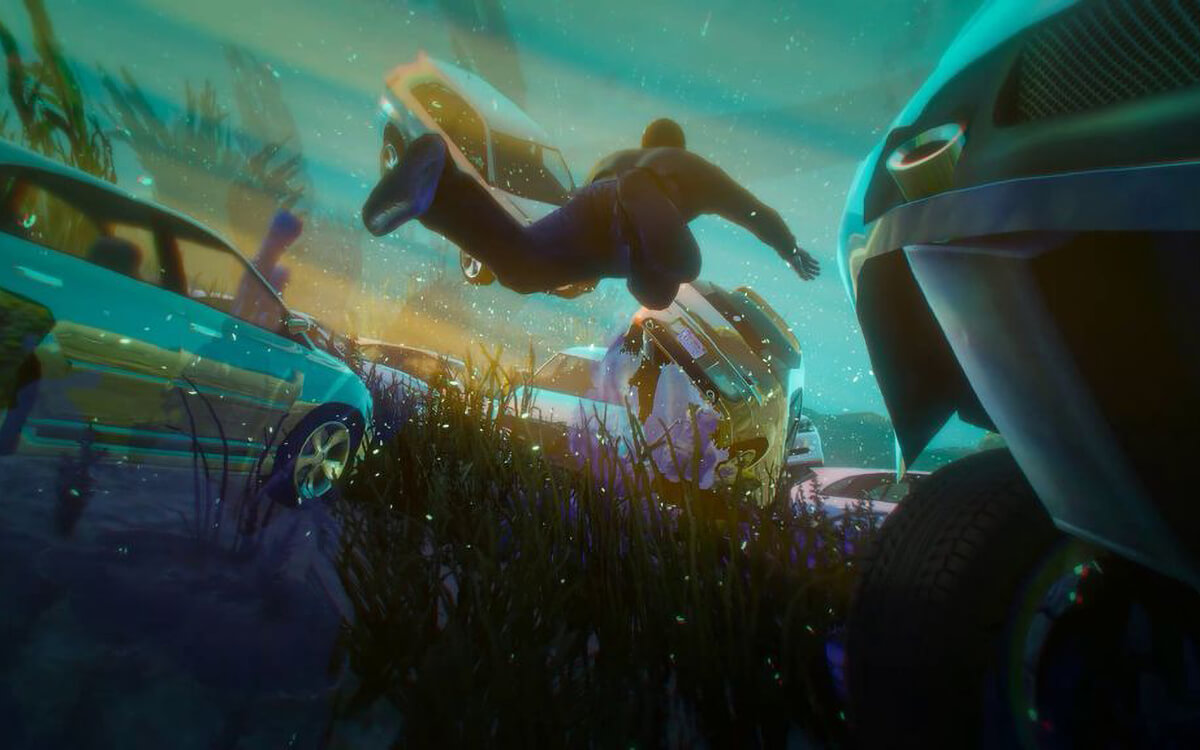
“Back to Earth: Contested Histories of Outer Space Travel” opens at New York’s Canal Projects. Nuotama Bodomo, Zahy Tentehar, and Alice dos Reis contribute to a film program that counters colonial space narratives (conquest, mining, tourism, etc.) with intersectional perspectives. Subash Thebe Limbu’s film Ningwasum (2021, image), for example, is a sci-fi film about a trio of Indigenous time travellers, from a future where Yakthung “knowledge, culture, ethics, and storytelling are still intact.”
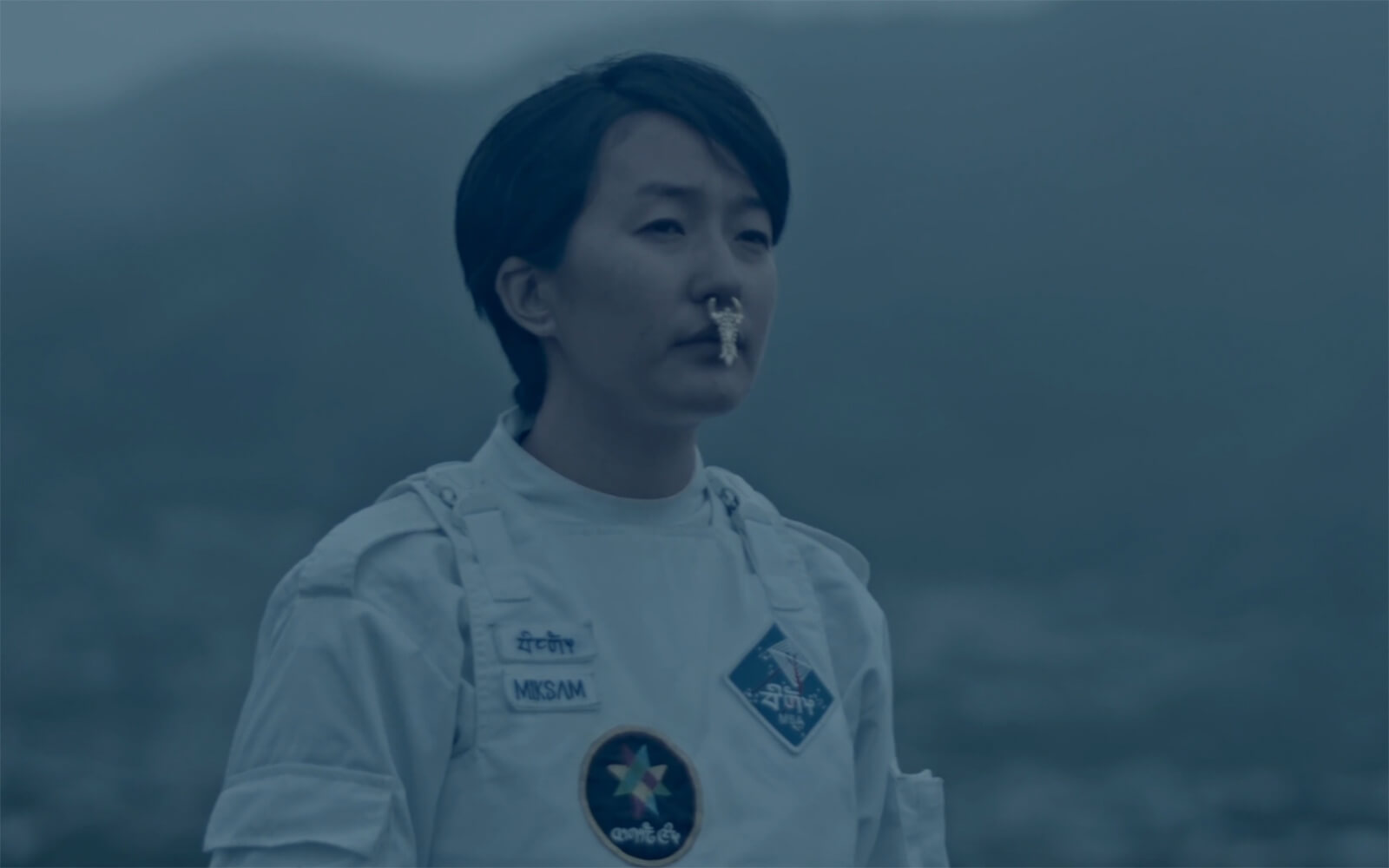
Resurfacing fabled 18th century partially-dissected wax figures used in the study of anatomy, “Cere Anatomiche” opens at Fondazione Prada Milan, presenting four anatomical venuses and 72 drawings from the La Specola collection alongside a companion film by David Cronenberg. Entitled Four Unloved Women, Adrift on a Purposeless Sea, Experience the Ecstasy of Dissection, the Canadian director’s short dwells on how the figures’ uncanny “body language and facial expressions do not display pain or agony.”

The Lustenau (AT) art space DOCK 20 celebrates the videogame interventions of Austrian “pseudo-Marxist media guerilla” Total Refusal in an immersive solo exhibition. Known for appropriating blockbuster titles for cultural critique and counter narratives, the machinima collective stages three works that deal with sleep, work, and recreation. Their newest piece, Club Stahlbad (2023, image), is a Cyberpunk 2077 mod that explores incomputable human sensations like intoxication and euphoria.
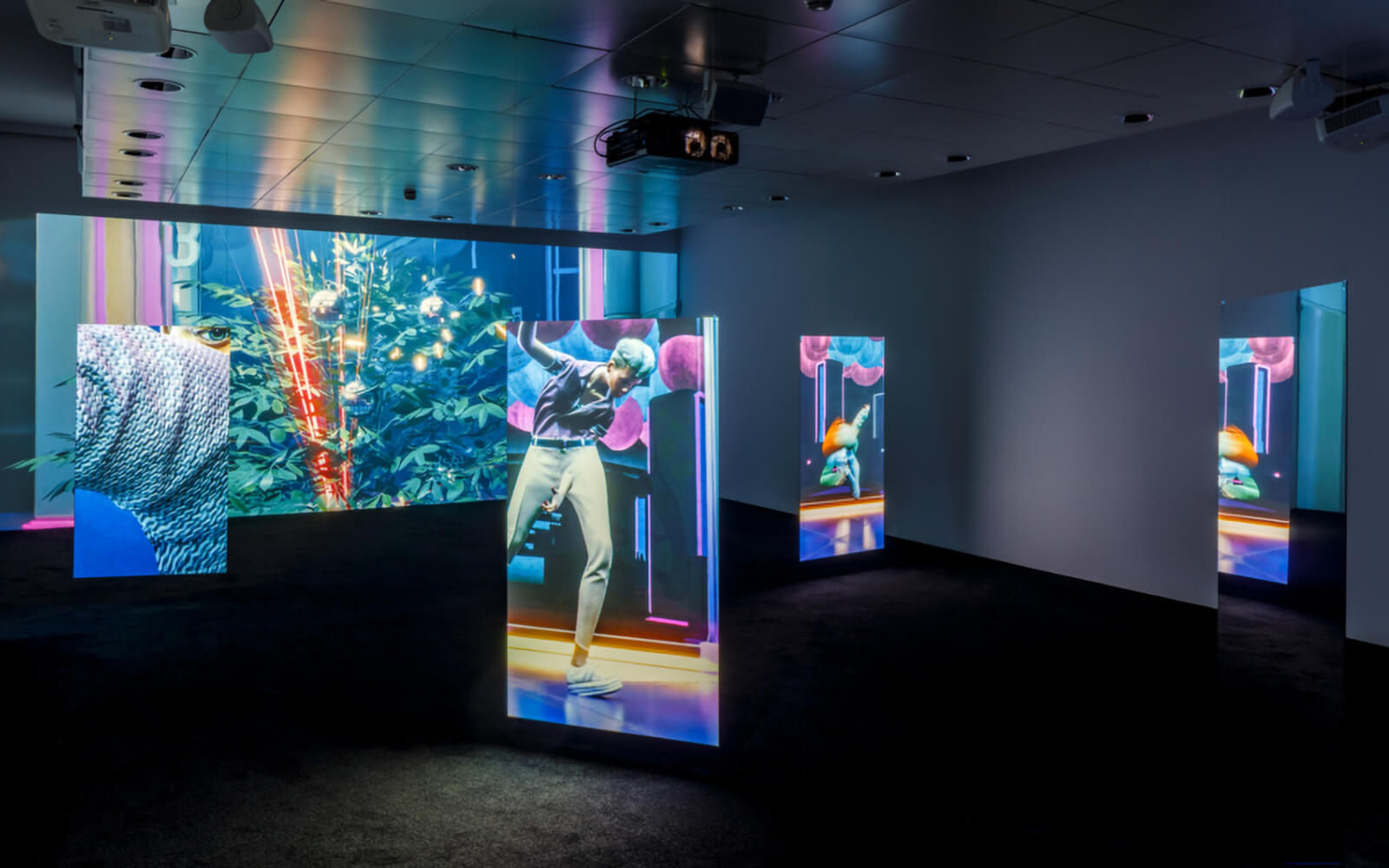
“The Technate,” an exhibition by Peter Behrbohm and Markus Bühler that “follows the wires” of North American internet infrastructure, opens at Berlin’s panke.gallery. The show centres their eponymous research project (2023, image), a reenactment of a 1947 road trip (from California to British Columbia) promoting the technocracy movement. In it, the duo cosplay as technicians (with a robot dog), and visit technoculture hotspots including Internet Archive and Noisebridge.
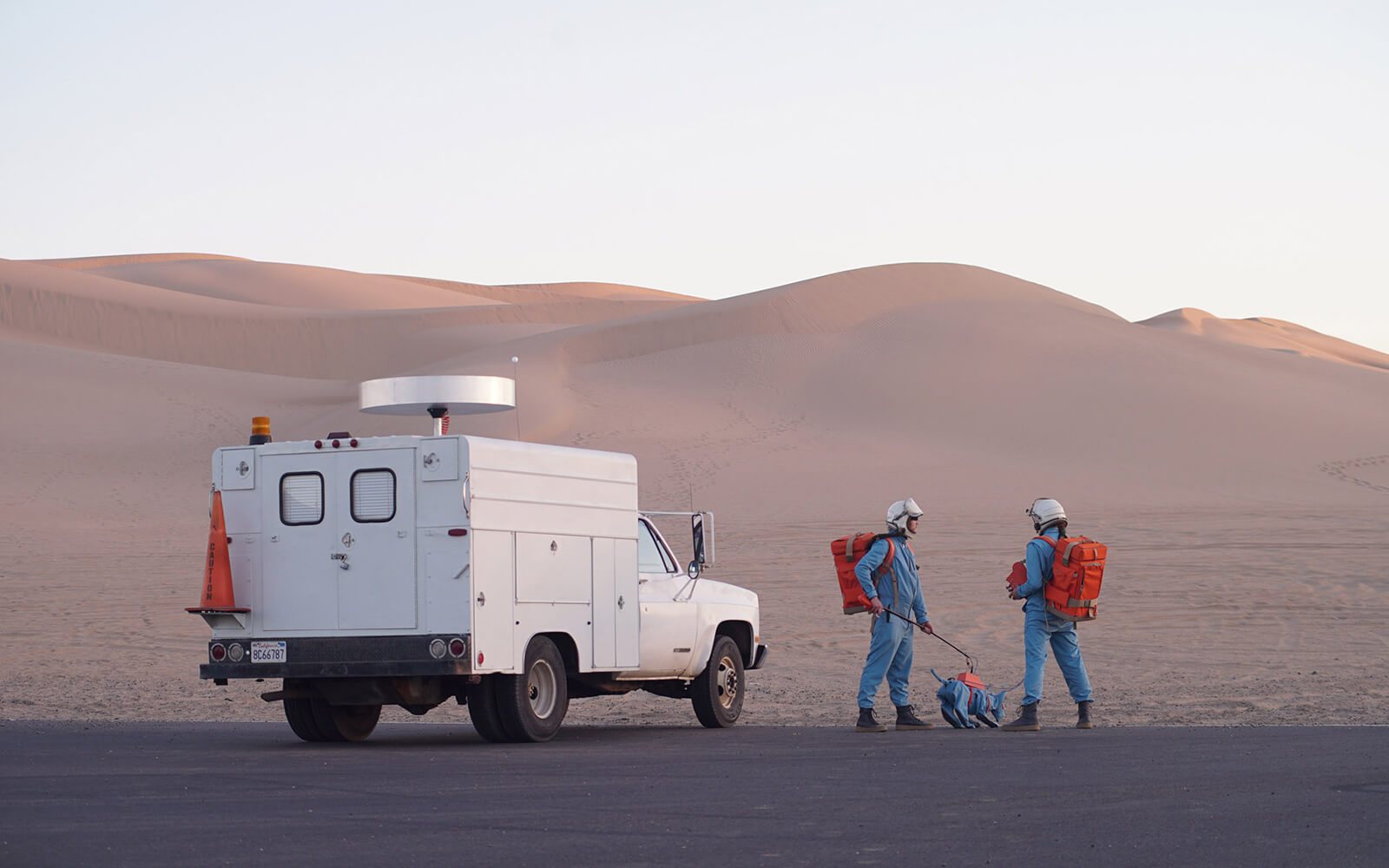
Buozyte & Samper (dirs.)
Vesper
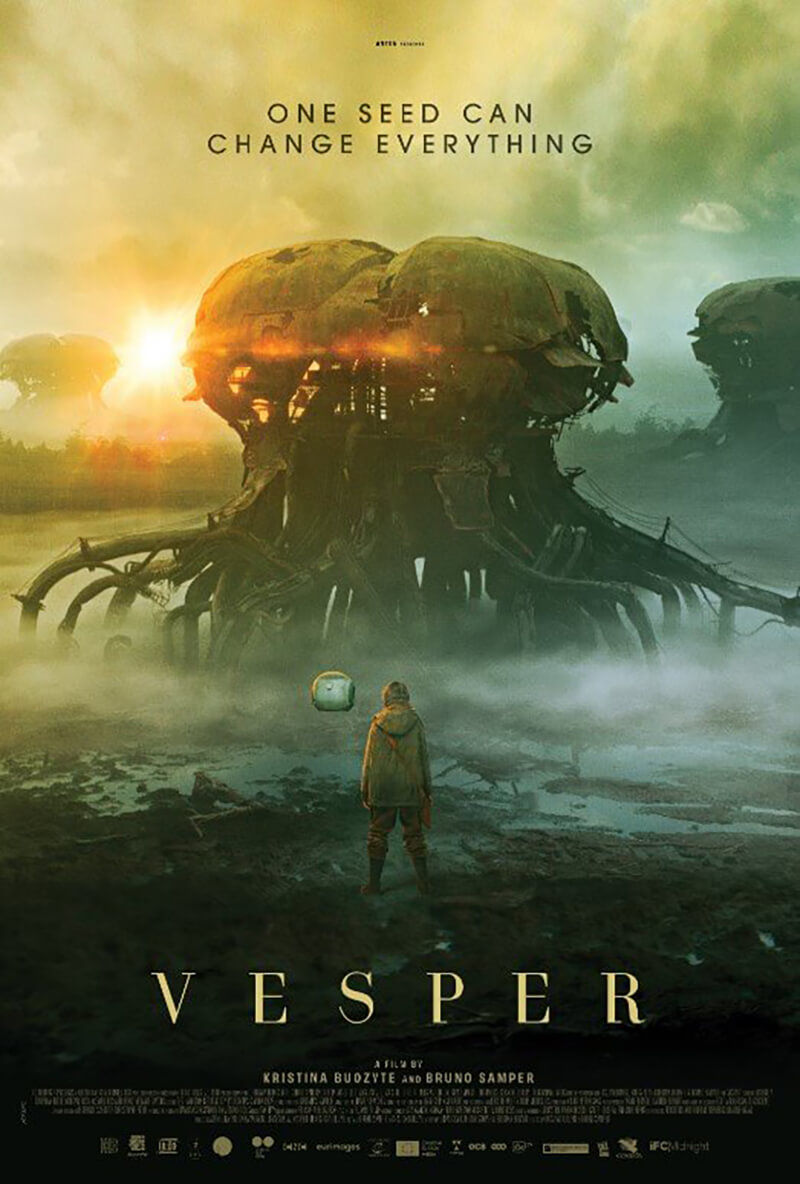
Delving into their (eponymous) new film (image, 2022), “Capture,” a solo exhibition by Metahaven, opens in Trondheim, Norway. In it, the artist collective explores ‘knowability’ on three fronts: a rumination on the inscrutability of bats, CERN’s hunt for the Higgs boson, and the remarkable qualities of lichens. Their displayed media, and accompanying textiles and collages contemplate consciousness in “both speculative deeply implicated ways,” writes curator Stefanie Hessler.
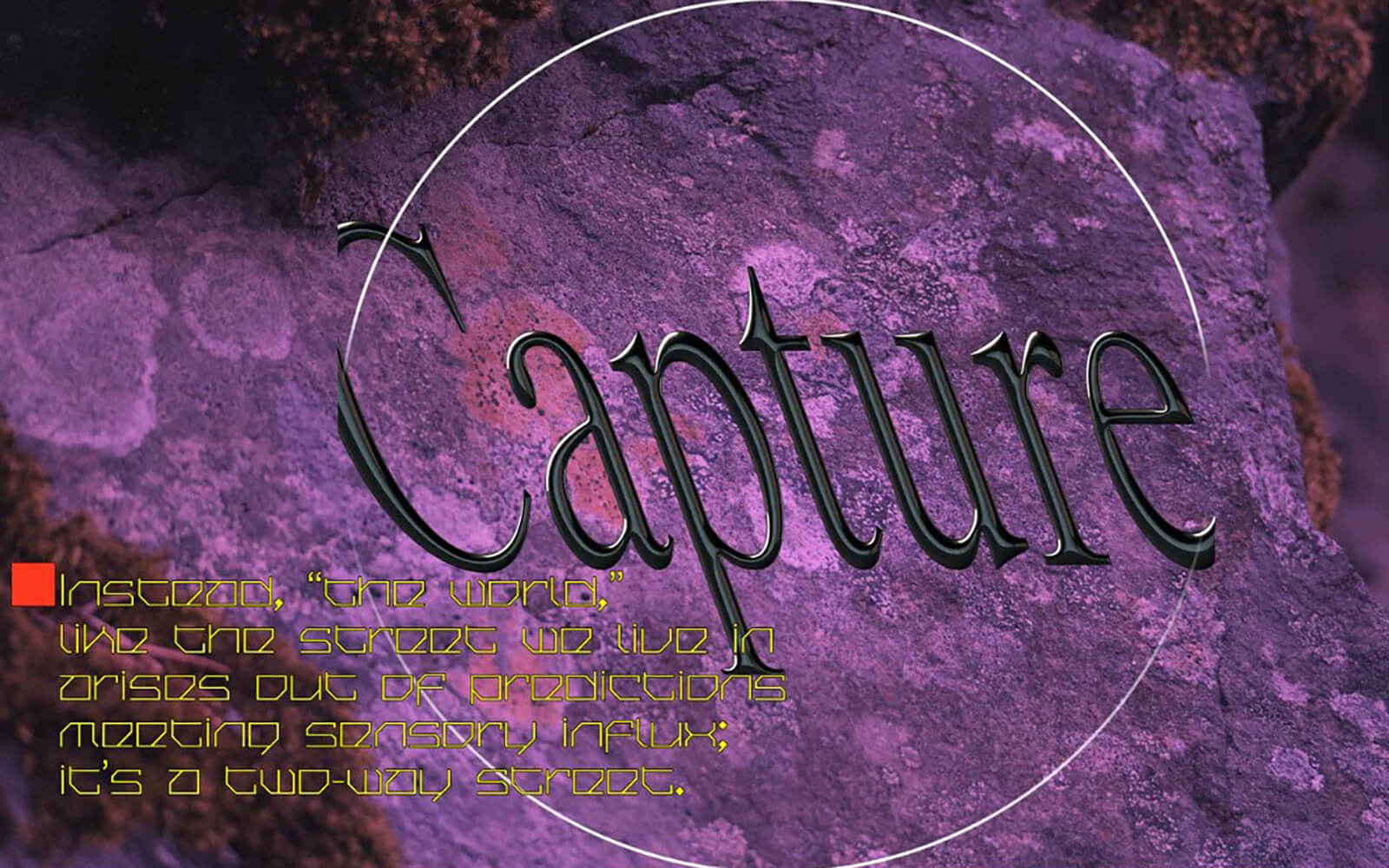
“Letters, Lights, Travels on the Street (Bokura ga tabi ni deru riyuu)” opens in NYC. A collaboration by New Art Dealers Alliance (aka NADA) and NowHere, the Jeffrey Ian Rosen-curated show presents “a dynamic cross-section” of Japanese (fine) artists including Ken Kagami, Motoyuki Daifu, and Maki Katayama. Of note: included is “psychedelic, boundary-exploring” (electronics-infused) film by the late Minoru Yoshida (image: Epicurism of Space Universe on the Rock, 1975).
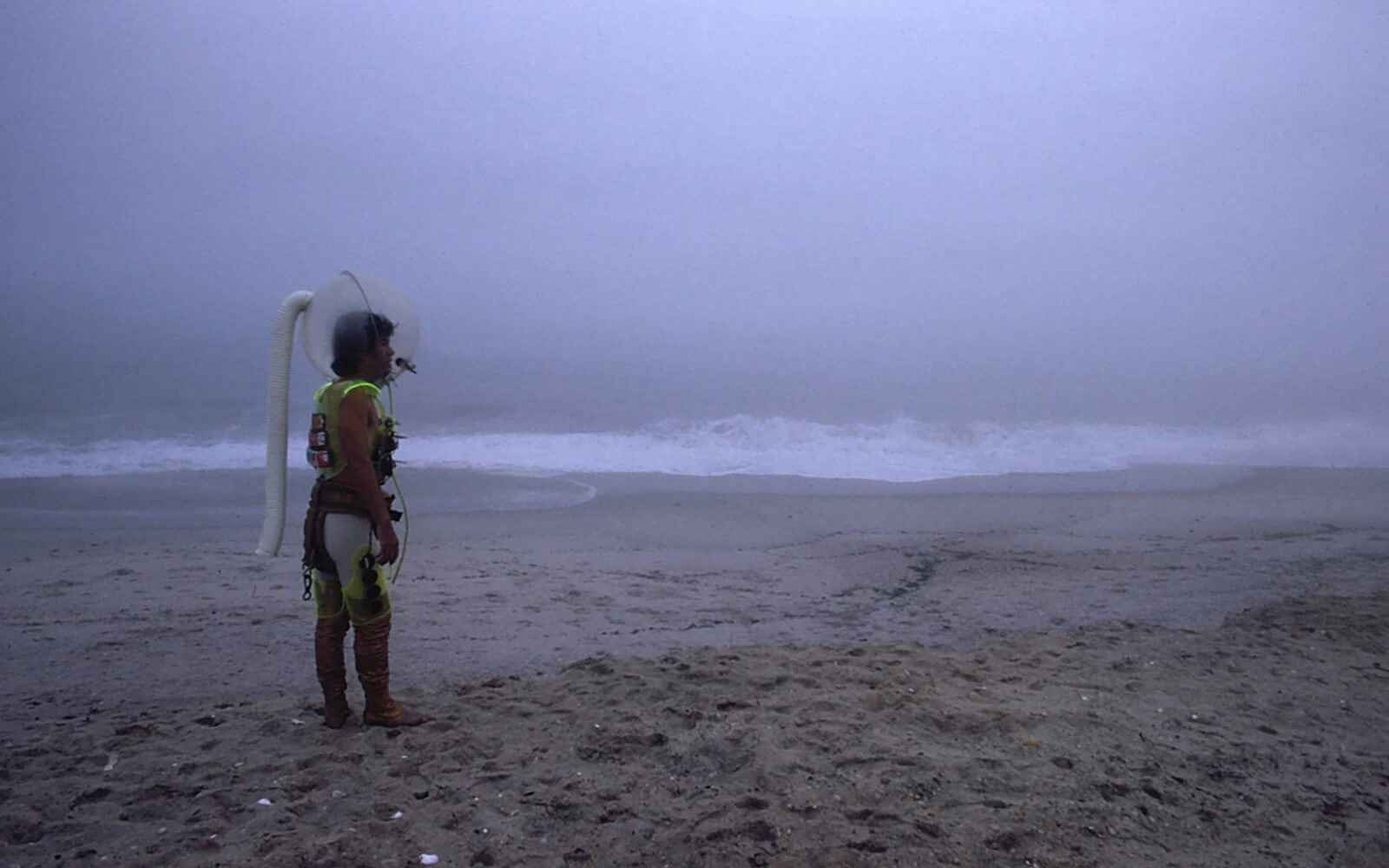
An ethnographic exploration of the work and daily life of non-playable characters, Total Refusal’s meta-documentary Hardly Working premieres (and wins best direction) at Locarno Film Festival, Switzerland. The film follows four digital extras—a laundress, a stableman, a street sweeper, a handyman—toiling away in the videogame Red Dead Redemption 2 (2018). “Their labour loops, activity patterns as well as bugs and malfunctions paint a vivid analogy for work under capitalism.”
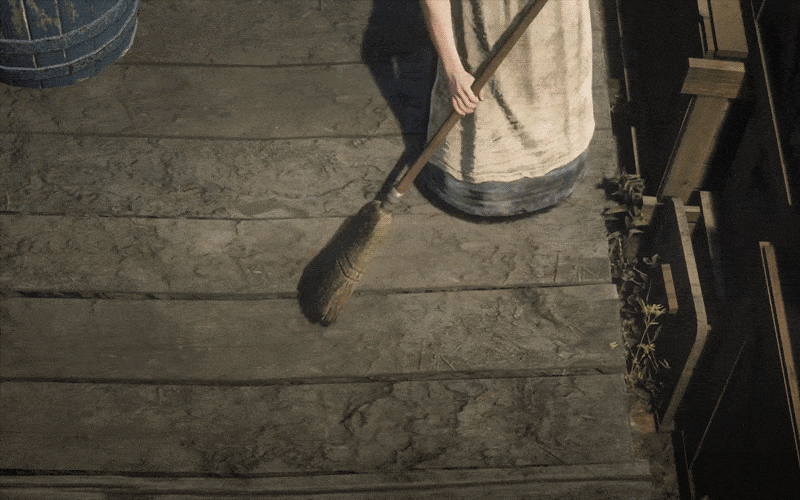
Art director Adam Pickard tweets an AI reimagination of Charles and Ray Eames’ iconic short Powers of Ten (1977). The film depicts the relative scale of the universe by order of magnitude based on a factor of 10, first zooming out from Earth, then in to a sub-atomic level. Whereas the filmmakers (masterfully) mixed footage and illustration, Pickard had OpenAI’s DALL-E 2 meditate on 57 text prompts—which are included—and apply the new inpainting feature to fill the gaps.

“He was the first man to fill a movie screen with pixels. Now, every movie you see was created on a digital machine.”
David Cronenberg
Crimes of the Future
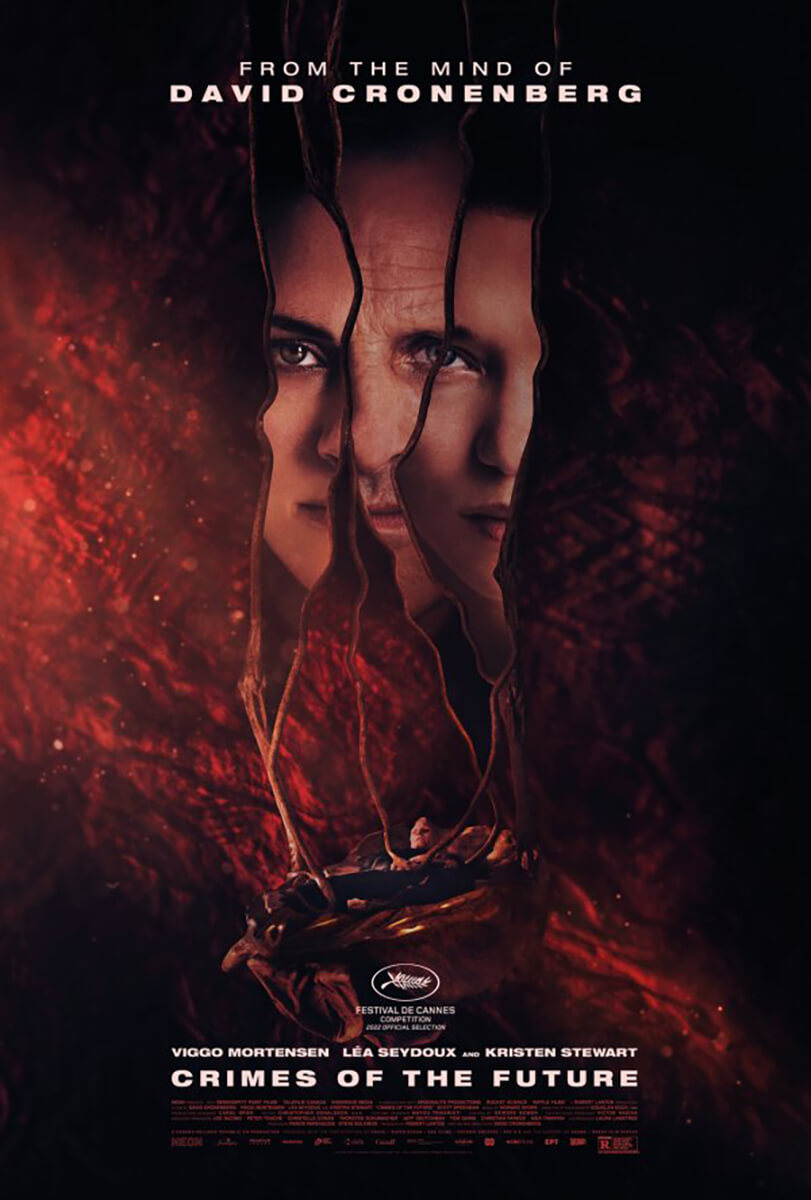
Robert Seidel premieres his latest experimental film, Hysteresis, at Filmfest Dresden, Germany, marking the artist’s first foray into AI and modern dance. Berlin-based Seidel uses machine-learning to mediate dense feedback loops of analogue drawings projected onto a performer’s choreography, corrupting the AI to unveil a “frenetic, delicate, flamboyant visual language of the hysteria and hysteresis in this historical moment.”

Daily discoveries at the nexus of art, science, technology, and culture: Get full access by becoming a HOLO Reader!
- Perspective: research, long-form analysis, and critical commentary
- Encounters: in-depth artist profiles and studio visits of pioneers and key innovators
- Stream: a timeline and news archive with 1,200+ entries and counting
- Edition: HOLO’s annual collector’s edition that captures the calendar year in print
